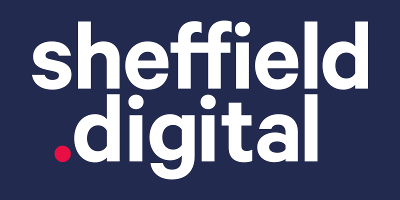Welcome to PyData Edinburgh's August event, when when we'll be hearing about ML's potential to help tackle epilepsy.
As always, we're keeping this to a one hour session, and we will have a main talk plus a Q&A session at the end. We will meet at 18.30, use the Zoom link which will be provided in the registration email once you RSVP.
We want to very much keep this group alive, so let us know if you would like to give a talk in the future, whether a main or a lightning one, we're always looking out for speakers (as you know!).
MAIN TALK & SPEAKER BIO:
=====================================================================
Machine Learning and its Potential to Improve Epilepsy Diagnosis
Static rule-based algorithms to assist medical diagnosis and treatment monitoring have been used in practice for decades (e.g. heart rate monitoring). Research into detecting epileptic seizures from the electrical activity of the brain , with machine learning, has been an active area of research for over 20 years. Given recent advancements in "big data", portable bio-sensing technologies, and other computer hardware/software, the feasibility of successfully implementing such algorithms into practice is improving.
This talk is an overview of how new applications of ML could soon provide physiologists with better quantitative tools to improve workflow and diagnostic accuracy. Prior knowledge of epilepsy, neuroscience, and ML is not assumed: talk aims to be accessible to a broad range of backgrounds.
Bio
Dr. David Elliott is a Teacher in Mathematical Sciences Computing at the University of Edinburgh, with a PhD in Applied Statistics from Lancaster University. He has a background in Psychology and Developmental Disorders, with his recent research focusing on developing hardware, software, and quantitative methods for portable neurological monitoring of childhood patients with epilepsy. He now focuses on teaching the statistical foundations and practical applications of data science and machine learning.
LOGISTICS
===========
18:25: Zoom Waiting room will open
18:30: Meetup will start — welcome & community announcements followed by our main speaker, and then Q&A
We'll aim to be finished by 19:30
REMOTE MEETINGS
===================
Please remember the Code of Conduct applies to a remote meeting as well.
When you join the meeting, your microphone will be muted, and your camera switched on, we miss you all, it's nice to see you! Once the talk starts, feel free to switch your camera off.
We'll use the chat channel in Zoom to deal with any issues, and we'll advise on how we will run the Q&A at the start of the session.
SPONSORS
=============================
While we might not be making such full use of our sponsors as we normally do, we still appreciate all they do for us to allow us to run this group - so thanks to Cathcart Associates, Wood Mackenzie, Solarwinds, Lloyds Banking, Canon Medical and Effini.
CODE OF CONDUCT
====================
Though virtual, our Code of Conduct still applies to all attendees, organisers and speakers. Please take the time to read through if you haven't before, we really appreciate your help to maintain a welcoming and friendly PyData community.
The PyData Code of Conduct (pydata.org) governs this meetup. To discuss any issues or concerns relating to the code of conduct or the behavior of anyone at a PyData meetup, please contact the local group organizers (message us on the meetup page). Please also submit a report of any potential Code of Conduct violation directly to NumFOCUS using the link found at numfocus.org.
More details andtickets: www.meetup.com
Imported From: www.meetup.com


